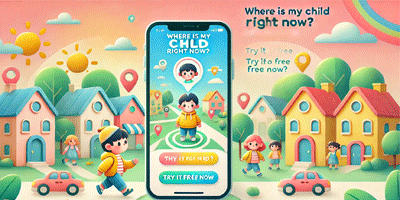"The Garden of Babel"…
Page Info
Writer sasasak_AndyKim Hit 952 Hits Date 25-01-17 10:19Content
"The Garden of Babel" is not a traditional term, but it seems to blend two biblical concepts: the Tower of Babel and the Garden of Eden. Here’s an explanation of each concept and an imaginative interpretation of their combination.
The Tower of Babel
The Tower of Babel is a story from Genesis 11 in the Bible. It describes humanity's attempt to build a tower that reaches the heavens. Unified by a single language, they sought to showcase their power and defy divine authority. In response, God confused their language, causing them to scatter across the earth, and the tower was left unfinished.
Key Symbolism:
Pride and Human Limits: The story warns against hubris and challenges to divine authority.
Cultural Diversity: The division of language is seen as the origin of linguistic and cultural differences.
The Garden of Eden
The Garden of Eden, mentioned in Genesis 2-3, is the idyllic home of the first humans, Adam and Eve. It represents a state of harmony and abundance, where humans lived in perfect communion with God until they disobeyed Him by eating the forbidden fruit, leading to their expulsion.
Key Symbolism:
Paradise and Perfection: A vision of ideal human existence in balance with nature and God.
Temptation and Fall: The loss of innocence and entry of sin into the world.
What Could "The Garden of Babel" Mean?
If we imagine "The Garden of Babel" as a conceptual blend of these two ideas, it might symbolize several themes:
Harmony vs. Hubris:
The Garden represents a perfect world, while Babel reflects humanity's flawed attempt to create its own utopia. Together, they might symbolize the tension between idealism and arrogance.
Human Nature's Duality:
The Garden of Eden signifies purity and innocence, whereas the Tower of Babel represents ambition and disobedience. "The Garden of Babel" could depict the coexistence of humanity’s desire for peace and its tendency toward conflict and overreach.
A Cautionary Tale:
This concept could warn against humanity’s attempt to recreate paradise while ignoring the lessons of history. Just as the Tower of Babel led to confusion, any pursuit of an ideal world driven by arrogance may result in division and chaos.
Modern Interpretations:
In a modern context, "The Garden of Babel" could reflect the paradox of advanced civilizations. While we aim for a perfect society (Eden), our rapid technological and cultural advancements (Babel) often lead to unintended consequences, such as environmental destruction or societal fragmentation.
A Creative Take
"The Garden of Babel" could inspire literature, philosophy, or art that explores the juxtaposition of:
Unity and diversity: How harmony can exist amid differences.
Ambition and humility: The balance between striving for greatness and respecting natural or divine boundaries.
Creation and destruction: The human capacity to build and destroy simultaneously.
This fusion of ideas offers rich ground for creative and philosophical exploration, making "The Garden of Babel" a compelling metaphor for the complexities of human aspiration and existence.
The Tower of Babel
The Tower of Babel is a story from Genesis 11 in the Bible. It describes humanity's attempt to build a tower that reaches the heavens. Unified by a single language, they sought to showcase their power and defy divine authority. In response, God confused their language, causing them to scatter across the earth, and the tower was left unfinished.
Key Symbolism:
Pride and Human Limits: The story warns against hubris and challenges to divine authority.
Cultural Diversity: The division of language is seen as the origin of linguistic and cultural differences.
The Garden of Eden
The Garden of Eden, mentioned in Genesis 2-3, is the idyllic home of the first humans, Adam and Eve. It represents a state of harmony and abundance, where humans lived in perfect communion with God until they disobeyed Him by eating the forbidden fruit, leading to their expulsion.
Key Symbolism:
Paradise and Perfection: A vision of ideal human existence in balance with nature and God.
Temptation and Fall: The loss of innocence and entry of sin into the world.
What Could "The Garden of Babel" Mean?
If we imagine "The Garden of Babel" as a conceptual blend of these two ideas, it might symbolize several themes:
Harmony vs. Hubris:
The Garden represents a perfect world, while Babel reflects humanity's flawed attempt to create its own utopia. Together, they might symbolize the tension between idealism and arrogance.
Human Nature's Duality:
The Garden of Eden signifies purity and innocence, whereas the Tower of Babel represents ambition and disobedience. "The Garden of Babel" could depict the coexistence of humanity’s desire for peace and its tendency toward conflict and overreach.
A Cautionary Tale:
This concept could warn against humanity’s attempt to recreate paradise while ignoring the lessons of history. Just as the Tower of Babel led to confusion, any pursuit of an ideal world driven by arrogance may result in division and chaos.
Modern Interpretations:
In a modern context, "The Garden of Babel" could reflect the paradox of advanced civilizations. While we aim for a perfect society (Eden), our rapid technological and cultural advancements (Babel) often lead to unintended consequences, such as environmental destruction or societal fragmentation.
A Creative Take
"The Garden of Babel" could inspire literature, philosophy, or art that explores the juxtaposition of:
Unity and diversity: How harmony can exist amid differences.
Ambition and humility: The balance between striving for greatness and respecting natural or divine boundaries.
Creation and destruction: The human capacity to build and destroy simultaneously.
This fusion of ideas offers rich ground for creative and philosophical exploration, making "The Garden of Babel" a compelling metaphor for the complexities of human aspiration and existence.
List of comments
No comments

